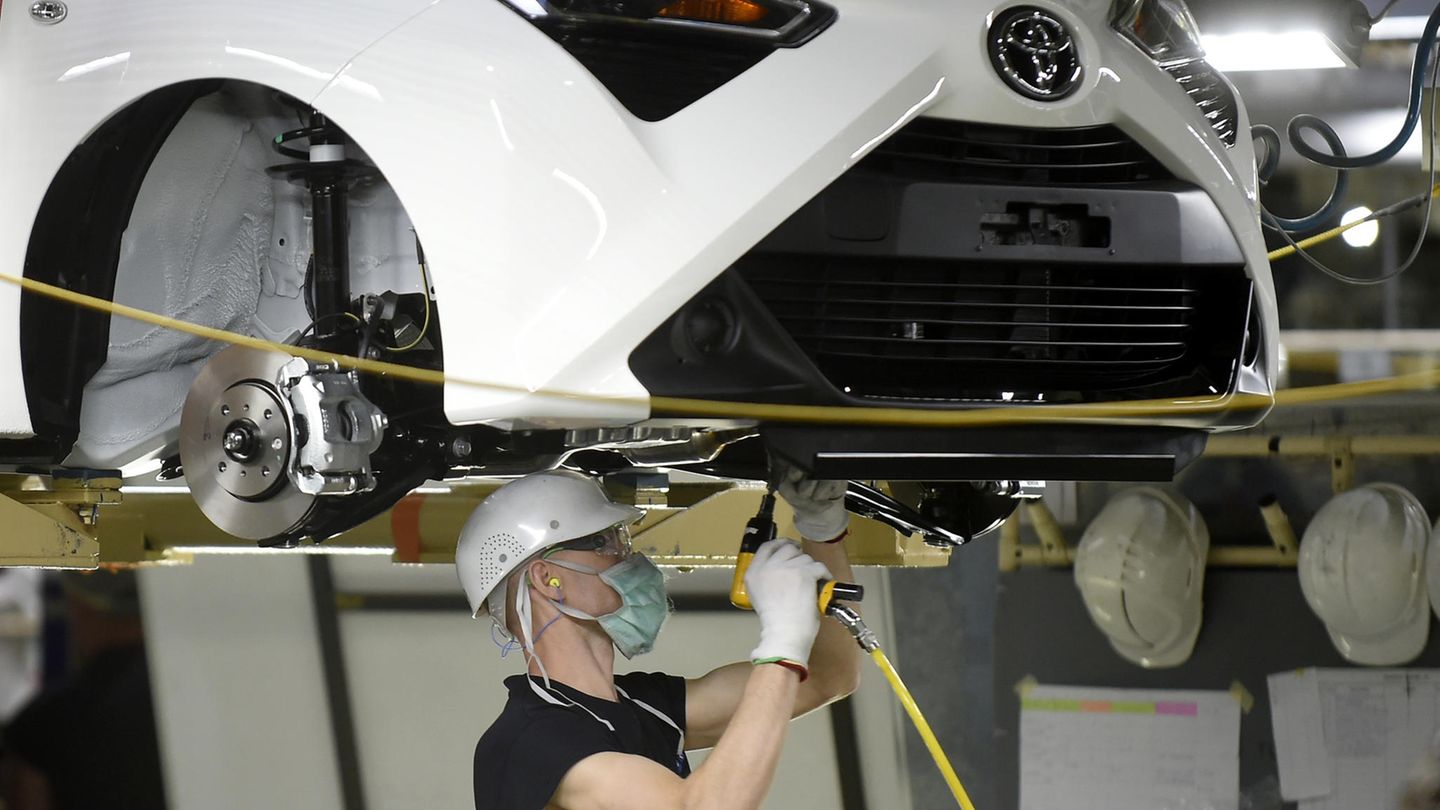The auto industry is increasingly relying on electromobility – unlike Toyota. The Japanese carmaker continues to believe in the future of the internal combustion engine. But his cars should still be climate neutral.
Toyota’s range of vehicles includes hybrid and electric cars, as well as a hydrogen-powered electric car. Nevertheless, Toyota is also working on the development of internal combustion engines with alternative – especially synthetic – fuels. The world’s largest car manufacturer is cooperating with Mazda and Subaru as well as the motorcycle manufacturers Kawasaki and Yamaha.
“To reduce CO2 emissions in the transport sector, the electrification of the vehicle range alone is not enough,” said Toyota in a press release on Monday. “The enemy is carbon, not the internal combustion engine,” said Akio Toyoda, president of Toyota, at a car race in Okayama Prefecture. “We need different solutions,” continued Toyoda. “This is the way to tackle climate neutrality.”
Mazda is also looking for the way into the emission-free car world and last weekend tested “a diesel made 100 percent from biomass”. Toyota and Subaru announced that they, too, want to take part in the Japanese Taikyu Series racing series next year. “The joint competition in racing is intended to accelerate technological development,” explains Toyota.
Toyota is also working on hydrogen engines
Toyoda personally tested a racing car with a hydrogen engine at the car race. This type of drive could also be a possibility for the future, they say. The Japanese carmaker has been working with Yamaha for years on a drive system that will be powered by hydrogen instead of gasoline or diesel. Such a vehicle has already been successfully tested at the 24-hour race in Fuji.
In addition, Kawasaki and Yamaha, who are involved in the development of the Toyota engine, are examining the development of hydrogen engines in motorcycles. Honda and Suzuki should also participate in this. It is important that the production and transport of the hydrogen is “green” and therefore without the consumption of fossil fuels, said Toyota. To achieve this, the company works with partners and local communities such as Fukuoka City.
When the Toyota boss was asked on the sidelines of the race when he saw the possibility of commercializing hydrogen technology, Toyoda evaded. He stressed that Toyota is also continuing to develop electric cars to meet demand in some markets. Toyota currently has the Mirai fuel cell vehicle on the market, which uses hydrogen to generate electricity for an electric motor.
Agreement at climate conference provides for the end of combustion engines
Just last week, around 30 states, cities and companies committed themselves at the climate conference in Glasgow to end the sale of combustion cars by 2040 at the latest. The combustion engine is expected to come to an end in leading markets by 2035. Of the German carmakers, Mercedes Benz joined the initiative, with Ford, Volvo and Jaguar Landrover also taking part. In addition, dozens of companies that invest in the auto industry or have their own car fleets, such as Eon, Ikea and Unilever, are participating. Japan and Toyota are not among the signatories to the agreement.
Sources:,, with material from dpa
Source From: Stern
I am a 24-year-old writer and journalist who has been working in the news industry for the past two years. I write primarily about market news, so if you’re looking for insights into what’s going on in the stock market or economic indicators, you’ve come to the right place. I also dabble in writing articles on lifestyle trends and pop culture news.




